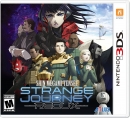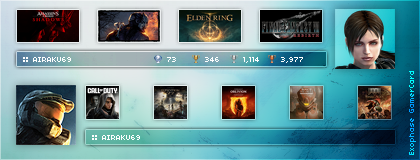Sometimes I wonder whether this guy posts these threads out of ignorance or if he's trying to incite debate/increase forum activity via controversial posts. I don't think this is a very difficult topic at all if you try to understand that people might value different aspects differently and then try to look at it from different perspectives as well.
For me personally, it's about control. I don't want to cede control of relatively expensive products to companies that generally care little of what's beneficial to me. There are already some rare cases where access to games you've paid for is lost because of the publisher's decision or other reasons, probably without any compensation to the owners. I don't expect that to be a major issue with large companies such as Sony, Microsoft, and Nintendo, but I have little doubt that they would absolutely at the very least consider dropping old games when few enough people are interested in them anymore. Aside from Microsoft, that's exactly what they've done with backwards compatibility, and Microsoft hasn't exactly demonstrated trustworthiness in the gaming industry either.
Speaking of backwards compatibility, that's actually a major reason why I'm hesitant to go digital on consoles. On PC, backwards compatibility is doing very well, and even if there was a major architectural revolution (e.g. x86-64 -> ARM), even in the worst case old equipment would probably be readily available for decades to come, not to speak of emulation and such. But on consoles, the situation is much worse. Microsoft has demonstrated a sufficient level of commitment to backwards compatibility, but as usual, Microsoft's commitment to console gaming is less certain. But neither Sony nor Nintendo can be considered trustworthy in terms of backwards compatibility, so playing your old digital games will become harder all the time. I also expect games on old consoles to become undownloadable at some point due to shutting down online services altogether for said consoles.
But even on PC, there are comparable concerns! Valve seems like a fairly trustworthy player, and while I don't trust GOG to stay around for a really long time, games on GOG are DRM-free and can be downloaded and played without a client should GOG go down for good (assuming it doesn't go down unexpectedly). But the other clients? I don't trust their longevity at all. The clients are not really essential to the business of the companies operating said clients, so I expect these companies to be relatively eager to shut down these clients once they no longer suit their strategy.
Naturally all this also ties in really nicely with DRM, which I've been opposing since it became a thing. I'm not happy about Steam either in this regard, but Steam has demonstrated a sufficient level of trustworthiness to me. I only worry about what comes after Gabe, but hopefully that won't be much of an issue any time soon.
Anyway, all this massively decreases the value of digitally distributed games to me. I do buy digitally distributed games as well, but I usually buy them after their price has down significantly. Every single game that I'm expected to pay over 10€ for, I consider very carefully, and I very rarely buy games for more than 20€, let alone at full price. And no, this isn't very restrictive to me. I have gigantic backlog of mostly cheap games, so I have little need to rush in to play new games, and I also have the physical option. If there was no physical option, I would probably spend less on gaming, period.
Also, it's not about a disc drive per se, it's about control, which ties in more with the distribution method. I don't really care whether it's a disc, a cartridge, or something else I have good control over once I have it in my possession. Digital distribution rarely has that, aside from GOG (I know there are other, smaller players as well, but that's besides my point).
Of course that's just my two cents (or my wall of text, whichever you want to call it), but I'm sure others have valid points as well. They might not be worth as much to me, but I have no need to downplay their importance either - to each their own - and I have nothing against people preferring digital either.

































































